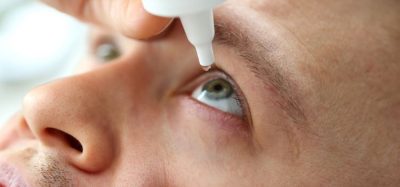FDA publishes recommendations on psychedelic clinical trial design
Posted: 26 June 2023 | Catherine Eckford (European Pharmaceutical Review) | No comments yet
New draft guidance published by the US Food and Drug Administration (FDA) is intended to aid clinical study design in psychedelic drug development programmes.


US Food and Drug Administration (FDA) has published its first draft guidance presenting considerations to the pharmaceutical industry for designing clinical trials for psychedelic drugs.
The draft guidance is intended to advise researchers on aspects such as clinical study design as they develop medications that contain psychedelics. Dr Tiffany Farchione, Director of the Division of Psychiatry in the FDA’s Center for Drug Evaluation and Research stated the regulatory body “hopes to outline the challenges inherent in designing psychedelic drug development programmes” and provide potential solutions.
What recommendations are included in the draft guidance on psychedelic drugs?
FDA’s draft guidance on psychedelic drugs includes basic considerations on trial conduct, data collection, subject safety and new drug application requirements. It also addresses psychotherapy in psychedelic drug development, considerations for safety monitoring and the importance of characterising dose-response and the durability of any treatment effect.
For example, regarding psychedelics that are currently Schedule I controlled substances, the draft guidance noted that activities associated with investigations under an Investigational New Drug (IND) application must comply with applicable Drug Enforcement Administration regulatory requirements.
Designing clinical studies to evaluate the safety and effectiveness of psychedelic drugs is uniquely challenging and a process that requires careful consideration, according to the FDA.
[The draft guidance is intended to] help researchers design studies that will yield interpretable results that will be capable of supporting future [psychedelic] drug applications”
Therefore, the goal is to “help researchers design studies that will yield interpretable results that will be capable of supporting future drug applications,” Dr Farchione added.
FDA’s draft guidance refers to psychedelics as “classic psychedelics”. These are typically understood to be drugs such as psilocybin and lysergic acid diethylamide (LSD) that act on the brain’s serotonin system, as well as “entactogens” or “empathogens” such as methylenedioxymethamphetamine (MDMA).
“Psychedelic drugs show initial promise as potential treatments for mood, anxiety and substance use disorders. However, these are still investigational products. Sponsors evaluating the therapeutic potential of these drugs should consider their unique characteristics when designing clinical studies,” noted Dr Farchione.
Comments are being accepted on the FDA’s draft guidance on psychedelic drugs. These should be submitted latest 23 Aug 2023 to be considered.
Related topics
Active Pharmaceutical Ingredient (API), Biologics, Biopharmaceuticals, Clinical Development, Clinical Trials, Drug Development, Drug Safety, Industry Insight, Regulation & Legislation, Research & Development (R&D), Therapeutics








